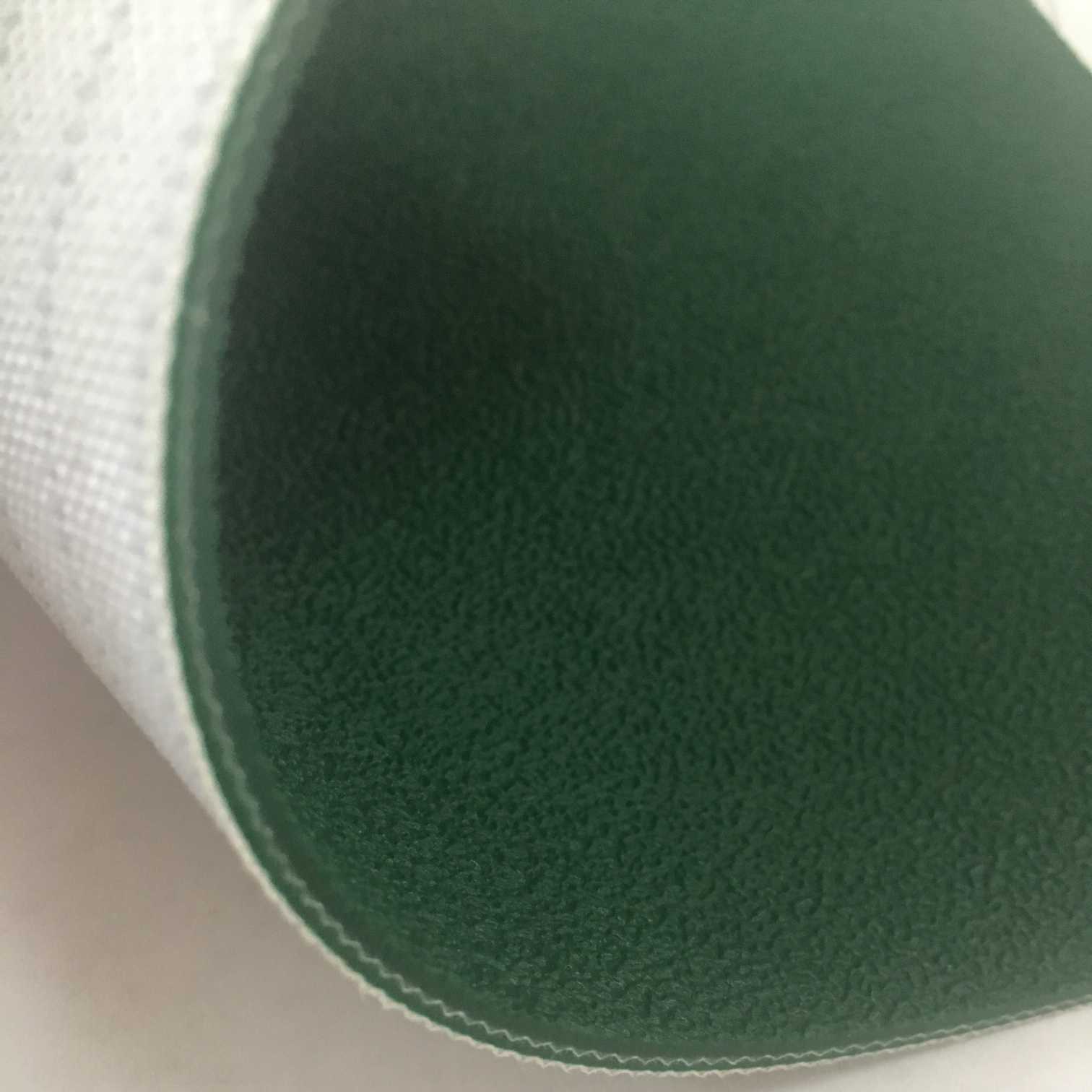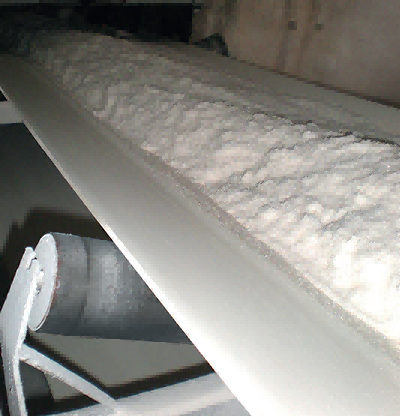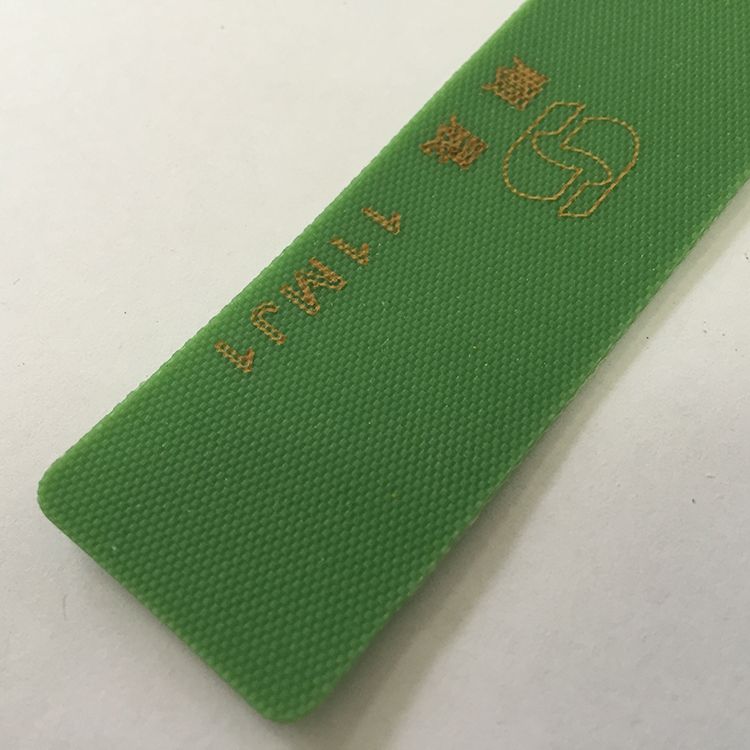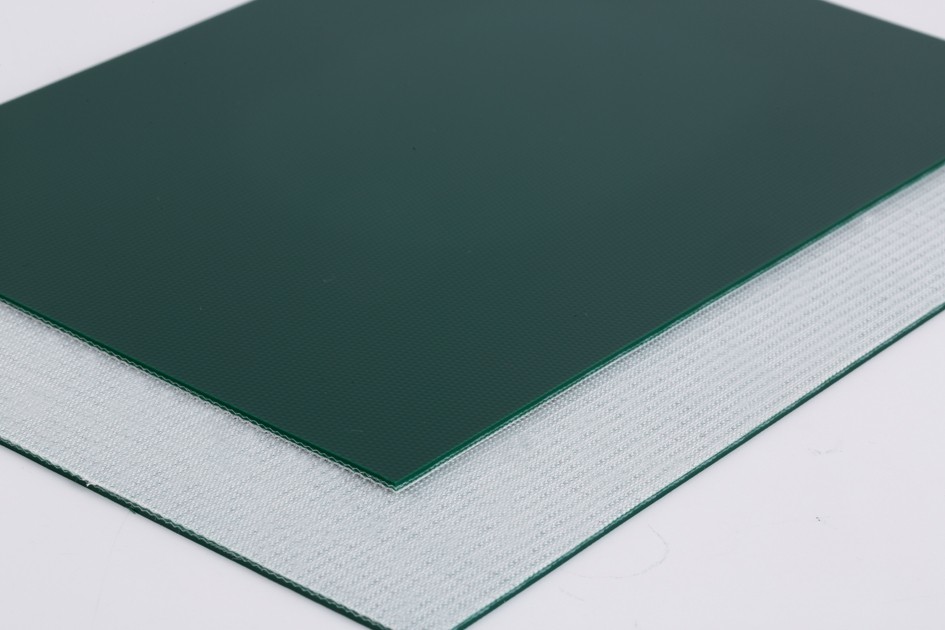Introduction
PVC solid woven conveyor belts play a vital role in the material handling and industrial sectors. These belts are known for their durability, flexibility, and resistance to abrasion and chemicals, making them indispensable in various industries. To maintain the reliability and safety of these conveyor belts, it is crucial for suppliers to adhere to strict quality control and industry standards throughout the manufacturing process. In this article, we will delve into how PVC solid woven conveyor belt suppliers ensure quality control and compliance to deliver top-notch products to their customers.

Understanding Industry Standards
Before we explore how PVC solid woven conveyor belt suppliers ensure quality control, it’s important to understand the significance of industry standards. Industry-specific standards provide a framework for manufacturers to follow, ensuring that products meet safety, material, and performance requirements. Compliance with these standards is essential for product reliability and safety in real-world applications.
- Explanation of Industry-Specific Standards: Different industries may have their own unique standards that dictate the requirements for conveyor belt manufacturing. For instance, the food industry requires belts that are safe for direct food contact and easy to clean, while the mining industry needs belts capable of withstanding heavy loads and extreme conditions.
- Significance of Compliance: Compliance with industry standards ensures that conveyor belts meet the expectations of customers and regulatory bodies. It also enhances the belts’ performance and safety, reducing the risk of accidents and operational disruptions.
Quality Control in Manufacturing
Quality control is a fundamental aspect of manufacturing processes in the conveyor belt industry. PVC solid woven conveyor belt suppliers implement various processes to maintain high product quality, reliability, and safety.
- Overview of Quality Control Processes: Quality control involves a series of inspections, testing, and quality assurance procedures. These processes are integrated at different stages of manufacturing to ensure that each belt meets the desired specifications.
- Quality Control Checkpoints: Manufacturers establish quality control checkpoints during material preparation, weaving, vulcanization, and finishing processes. At each stage, skilled technicians inspect the belts for any defects, inconsistencies, or deviations from the required standards.
Materials Selection and Sourcing
Quality control begins with the selection and sourcing of raw materials. Using high-quality materials is essential to ensure the durability and reliability of PVC solid woven conveyor belts.
- Importance of High-Quality Materials: The quality of raw materials significantly influences the final product. PVC solid woven conveyor belt suppliers must carefully select materials that meet industry standards and provide the necessary strength, flexibility, and resistance to wear and tear.
- Supplier Vetting and Quality Assessment: Reliable PVC solid woven conveyor belt suppliers of raw materials are crucial to maintaining consistent quality. PVC solid woven conveyor belt suppliers assess the quality of materials, conduct material testing, and ensure that the sources are reputable.
- Traceability and Documentation: Traceability and documentation of material sources are critical for accountability. Knowing the origin of materials allows PVC solid woven conveyor belt suppliers to address issues or recalls efficiently and maintain consistent quality.
Manufacturing Equipment and Processes
To produce high-quality conveyor belts, PVC solid woven conveyor belt suppliers must maintain and monitor their manufacturing equipment and processes rigorously.
- Machinery and Equipment: Conveyor belt manufacturing relies on a range of specialized machinery and equipment. These machines need to be well-maintained, calibrated, and periodically inspected to ensure consistent product quality.
- Monitoring and Controlling Variables: Variations in manufacturing variables can impact the quality of the end product. Suppliers implement process controls to monitor variables such as temperature, tension, and speed to maintain consistency.
Testing and Certification
Testing and certification are integral to quality control in conveyor belt manufacturing. Rigorous testing ensures that the belts meet performance and safety benchmarks.
- Testing Methods and Protocols: Conveyor belt suppliers employ a variety of testing methods to assess the performance and safety of their products. This may include tensile strength tests, flame resistance tests, and abrasion resistance tests.
- Independent Third-Party Certification: Many PVC solid woven conveyor belt suppliers seek independent third-party certification to validate their compliance with industry standards. Third-party certification provides customers with confidence in the product’s quality and safety.
- Meeting Industry Performance and Safety Benchmarks: Meeting specific industry performance and safety benchmarks is a critical part of quality control. Conveyor belts must meet or exceed the requirements set by the relevant industry standards.
Compliance with Environmental Regulations
In today’s world, environmental regulations and sustainability are paramount. Conveyor belt suppliers must consider the environmental impact of their manufacturing processes and take steps to minimize it.
- Environmental Regulations: Suppliers need to be aware of and comply with environmental regulations in their region. This includes waste disposal, emissions, and sustainable manufacturing practices.
- Minimizing Environmental Impact: Efforts to minimize the environmental impact may include reducing waste, recycling materials, and using eco-friendly processes and materials when possible.
Employee Training and Safety
Ensuring employee training and safety is an integral part of quality control. Well-trained employees are more likely to produce high-quality products, and a safe working environment is crucial.
- Employee Training: PVC solid woven conveyor belt suppliers invest in comprehensive training programs to ensure that employees understand quality control procedures and safety protocols.
- Safe Working Environment: A safe working environment is not only an ethical responsibility but also essential for employee well-being and product quality. Compliance with labor laws and safety regulations is paramount.
Documentation and Records
Maintaining detailed records of the manufacturing process is essential for quality control and accountability.
- Detailed Records: Suppliers keep comprehensive records of each step in the manufacturing process. These records are critical for tracking product quality, identifying issues, and ensuring accountability.
- Traceability and Accountability: Detailed records enable suppliers to trace any problems back to their source and take corrective actions. They also assist in identifying opportunities for improvement in the manufacturing process.
Customer Communication and Support
Effective communication with customers and providing support is a vital aspect of ensuring quality control. PVC solid woven conveyor belt suppliers must be transparent about their quality control efforts and address customer inquiries and concerns promptly.
- Transparency in Conveying Quality Control Efforts: PVC solid woven conveyor belt suppliers should communicate their commitment to quality control and compliance with customers. This transparency builds trust and confidence.
- Handling Customer Inquiries and Concerns: Responsive customer support is essential for addressing any quality concerns or questions that customers may have. Timely and effective communication is key to resolving issues.
Continuous Improvement
The conveyor belt industry is ever-evolving, and suppliers must continuously seek ways to improve their quality control processes.
- Ongoing Quality Control Process Refinement: PVC solid woven conveyor belt suppliers should establish feedback loops and actively seek opportunities for process improvement. Continuous refinement of quality control processes is essential for maintaining product quality.
- Feedback from Product Performance and Customer Input: PVC solid woven conveyor belt suppliers can gain valuable insights from monitoring the performance of their products in real-world applications and by soliciting input from customers.
Conclusion
The PVC solid woven conveyor belt industry relies on rigorous quality control and compliance with industry standards to deliver reliable, safe, and high-performance products. Understanding the importance of industry standards, quality control processes, materials selection, machinery maintenance, testing, and environmental considerations is crucial for both PVC solid woven conveyor belt suppliers and customers.
Quality control ensures that conveyor belts meet and exceed the requirements of various industries, providing confidence to customers who rely on these essential components in their operations. As technology advances and environmental awareness continues to grow, conveyor belt suppliers will play a vital role in meeting evolving industry standards and delivering top-notch products to meet the ever-changing needs of their customers.





